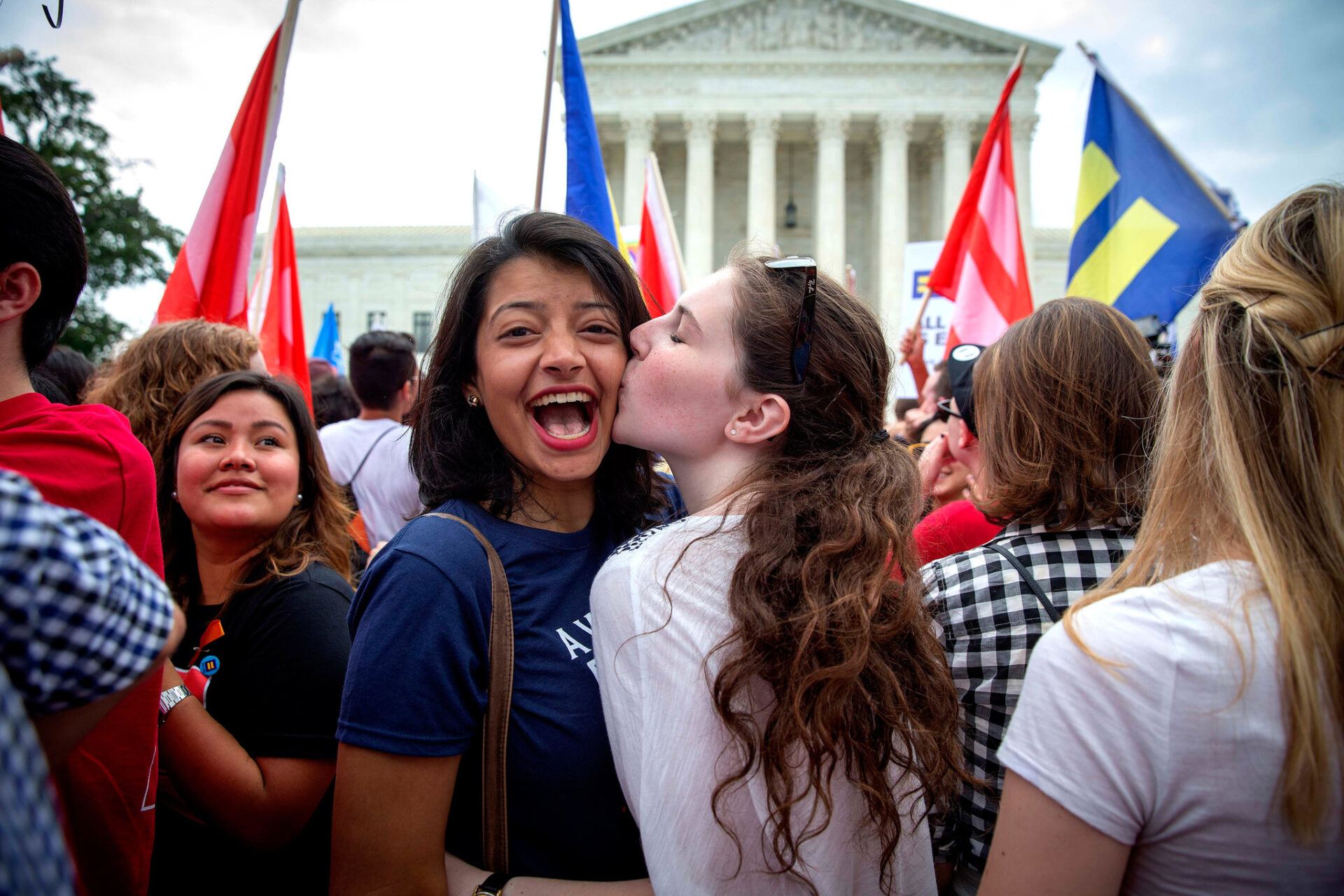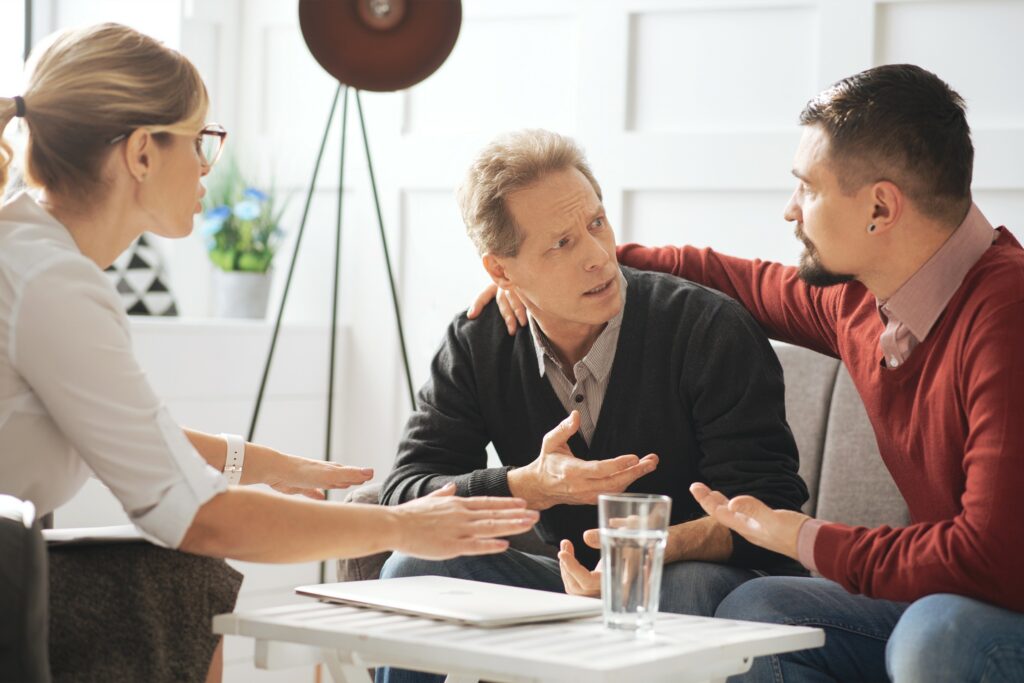In today’s evolving society, LGBTQ marriage counseling plays a crucial role in supporting and strengthening relationships within the LGBTQ community. It recognizes the unique challenges faced by LGBTQ couples and offers a safe space to navigate them. This article aims to shed light on the importance of LGBTQ-inclusive counseling and discuss the benefits it provides. We will also guide individuals in finding LGBTQ marriage counseling services near them.
Contents
Understanding LGBTQ Relationships

LGBTQ relationships refer to romantic and/or sexual relationships involving individuals who identify as lesbian, gay, bisexual, transgender, or queer/questioning. These relationships share many similarities with heterosexual relationships, as they are based on love, commitment, and mutual respect. However, some unique aspects and challenges arise due to the societal context and historical discrimination faced by LGBTQ individuals.
Here are some key points to help understand LGBTQ relationships:
- Sexual Orientation and Identity: LGBTQ relationships involve individuals who identify as lesbian (women attracted to women), gay (men attracted to men), bisexual (attracted to both men and women), transgender (individuals whose gender identity differs from their assigned sex at birth), or queer/questioning (an umbrella term for diverse sexual orientations and gender identities).
- Love and Commitment: LGBTQ relationships are built on the same foundations of love, emotional connection, and commitment as any other relationship. Couples may choose to express their commitment through marriage, civil partnerships, or other forms of legal recognition. This is depending on the laws in their country.
- Challenges: LGBTQ relationships may face unique challenges due to societal prejudice, discrimination, and lack of acceptance. These challenges can include legal barriers, stigma, prejudice from family or community members, and the potential for rejection or violence. Overcoming these challenges often requires resilience, support, and creating a strong network of allies.
- Supportive Relationships: Allies, friends, and families play a crucial role in supporting LGBTQ individuals and their relationships. Allies can provide acceptance, understanding, and advocacy to help counteract discrimination and create an inclusive environment.
Benefits of LGBTQ Marriage Counseling
LGBTQ marriage counseling, like any form of couples therapy, can offer several benefits to individuals in same-sex or LGBTQ+ relationships. Here are some potential advantages of LGBTQ marriage counseling:
- Improved Communication: Counseling provides a safe and neutral space for couples to improve their communication skills. It can help partners express their feelings, needs, and concerns more effectively, leading to better understanding and resolution of conflicts.
- Conflict Resolution: LGBTQ marriage counseling can help couples constructively navigate conflicts and disagreements. Therapists can assist in identifying unhealthy patterns, finding common ground, and developing strategies for resolving conflicts peacefully.
- Validation and Support: LGBTQ couples may face unique challenges related to their sexual orientation or gender identity. Marriage counseling can provide a supportive environment where couples can discuss their experiences, validate each other’s feelings, and gain a better understanding of the impact of societal factors on their relationship.
- Identity and Self-Acceptance: LGBTQ marriage counseling can assist individuals in exploring and embracing their sexual orientation or gender identity. It can promote self-acceptance, self-esteem, and a sense of belonging. These are crucial for the well-being of both individuals and the relationship.
- Relationship Strengthening: Counseling can help couples strengthen their bond and deepen their emotional connection. By exploring their values, goals, and expectations, couples can align their visions for the future and work towards common objectives.
- Overcoming Internalized Homophobia or Transphobia: LGBTQ individuals may internalize societal prejudice or struggle with self-acceptance due to their sexual orientation or gender identity. Marriage counseling can help address these issues and support individuals in overcoming internalized homophobia or transphobia, leading to healthier relationships.
- Family and Social Support: Some LGBTQ couples face challenges related to family acceptance or navigating social environments. Marriage counseling can assist couples in managing these external pressures, strategizing family discussions, and building a support network that understands and embraces their relationship.
Finding LGBTQ Marriage Counseling Near Me

To find LGBTQ marriage counseling near you, here are some steps you can take:
- Online Directories: Utilize online directories that specialize in LGBTQ-friendly therapists and counselors. These allow you to search for professionals who have experience working with LGBTQ individuals and couples. These directories often provide filters to help you narrow down your search by location, specialty, and more.
- LGBTQ Community Centers: Local LGBTQ community centers or organizations may offer counseling services or be able to provide referrals to LGBTQ-friendly therapists in your area. They can be valuable resources for finding inclusive and supportive mental health professionals.
- LGBTQ Support Groups: Joining LGBTQ support groups or online communities can provide opportunities to connect with others who may have recommendations for LGBTQ-affirming therapists or counselors in your area. These groups can be found through community centers, social media platforms, or LGBTQ-focused organizations.
- LGBTQ Health Clinics: LGBTQ health clinics or LGBTQ-affirming healthcare providers often have networks of therapists and counselors who specialize in working with LGBTQ individuals and couples. Contacting such clinics or providers and inquiring about counseling services can be a starting point.
- Referrals from LGBTQ Networks: Seek recommendations from friends, acquaintances, or members of the LGBTQ community who have had positive experiences with marriage counseling or LGBTQ-specific therapy. Word-of-mouth referrals can be valuable in finding professionals who are knowledgeable and affirming.
What to Expect in LGBTQ Marriage Counseling

In LGBTQ marriage counseling, you can expect a supportive and affirming environment where you and your partner can address the unique challenges and dynamics of your relationship. Here’s an overview of what you might encounter during LGBTQ marriage counseling:
- Initial Assessment: At the beginning of your counseling journey, the therapist will typically conduct an initial assessment. This is to gather information about you, your partner, and your relationship. They may ask questions about your background, relationship history, and specific concerns or goals you have for counseling.
- Safe and Affirming Space: LGBTQ-affirming therapists create a safe and non-judgmental space where you and your partner can openly discuss your experiences, emotions, and concerns. They should demonstrate understanding and respect for your sexual orientation, gender identity, and relationship dynamics.
- Exploration of Relationship Issues: LGBTQ marriage counseling aims to address unique challenges and dynamics. These may arise in same-sex or LGBTQ+ relationships. You can expect to explore topics such as communication issues, conflict resolution, intimacy, trust, external pressures, family acceptance, and the impact of societal factors on your relationship.
- Validation and Empathy: Therapists in LGBTQ marriage counseling are trained to provide validation, empathy, and understanding. They should recognize and validate the impact of societal prejudice, discrimination, and internalized homophobia or transphobia on your relationship. This validation can be healing and help you and your partner feel understood and supported.
- Communication and Conflict Resolution Skills: A significant focus of LGBTQ marriage counseling is often on improving communication and conflict resolution skills. The therapist will help you and your partner develop effective strategies for expressing your needs, listening to each other, and resolving conflicts healthily and constructively.
- Individual and Relationship Exploration: LGBTQ marriage counseling may involve exploring individual experiences, identities, and histories that contribute to the relationship dynamics. The therapist may assist in identifying patterns and addressing personal challenges. It also helps you and your partner understand how these factors impact your relationship.
- Goal Setting and Action Plans: Throughout the counseling process, you and your partner will work together with the therapist to establish specific goals and develop action plans. These goals may include improving communication, addressing specific relationship issues, enhancing intimacy, or building a stronger foundation of trust. The therapist will guide you in setting realistic goals. It also provides strategies to work towards them.
- Support and Resources: LGBTQ marriage counseling often provides access to resources, support groups, or referrals to other professionals or LGBTQ organizations. They can further support you and your partner’s needs. These resources can be helpful for continued growth and support beyond the counseling sessions.
Conclusion
In conclusion, LGBTQ relationships, like any other, are built on love, commitment, and mutual respect. LGBTQ marriage counseling offers a supportive and affirming space for couples to address the unique challenges they may face due to their sexual orientation or gender identity.
Remember that the counseling experience is unique to each couple, and open communication with the therapist is key to ensuring your needs and goals are addressed. LGBTQ marriage counseling offers an opportunity for growth, understanding, and building a stronger foundation for a happy and fulfilling relationship.
Life may sometimes be challenging for people from the LGBTQ community, but Online LGBTQ Counseling can help. Get experienced LGBTQ therapists at PrideMantra: Book a trial LGBTQ therapy session.


